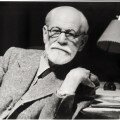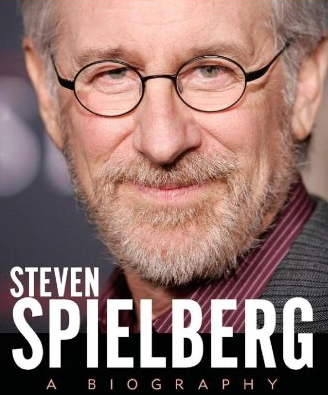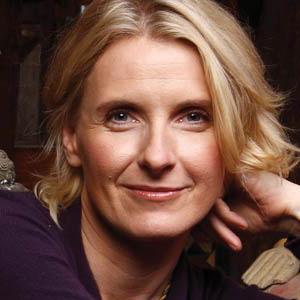 Mark Zuckerberg is well known for his phenomenal success and the large part that he played in the online-social revolution, after co-founding and creating Facebook from his dorm during college. Facebook has grown ever since, now has a user base of over 250 million people and has made Mark a billionaire in the process.
Mark Zuckerberg is well known for his phenomenal success and the large part that he played in the online-social revolution, after co-founding and creating Facebook from his dorm during college. Facebook has grown ever since, now has a user base of over 250 million people and has made Mark a billionaire in the process.
Mark Zuckerberg: Life Biography
On May 14th, 1984, Mark Zuckerberg was born in White Plains, New York in to a well-educated family and grew up in the village of Dobbs Ferry, nearby. His mother worked as a psychiatrist previous to the birth of Mark and his siblings – Randi, Donna and Arielle, and his father ran a local dental practice attached to the family home.
Mark first developed an interest in computers at an early age, first using Atari BASIC at around age 12 to create a messaging program, which he nicknamed ‘Zucket.’ His father then used the program in his dental practice, so that his receptionist could inform him of a new patient without shouting through the practice.
‘Zucket’ was also used by the family to communicate between each other throughout the house, and with friends, Mark also created computer games ‘just for fun.’ Mark’s parents went on to hire a private computer tutor, David Newman, to attend the house and work with Mark once a week with the hope of keeping up with Mark’s interest.
Zuckerberg studied at an exclusive preparatory school called the Phillips Exeter Academy in New Hampshire later on. It’s said he showed a good talent in fencing there and became the captain of the school’s team. He also did well in writing and literature, and earned a diploma in classics.
However, regardless of the variety of activities and interests he was participating in, Mark continued his fascination with computers. He continued to work on new programs and while in high school created an early version of the music software now known as Pandora, which he called Synapse.
A variety of companies including AOL and Microsoft, as mentioned in the film ‘The Social Network’ expressed an interest in the software and even offered to hire Mark before his graduation. However, he declined and progressed on to Harvard instead.
Harvard
Following his graduation from Exeter in 2002, Zuckerberg enrolled at the well renowned Harvard University in Massachusetts. He quickly gained a reputation and by his sophomore year was well known as the go-to software developer on campus.
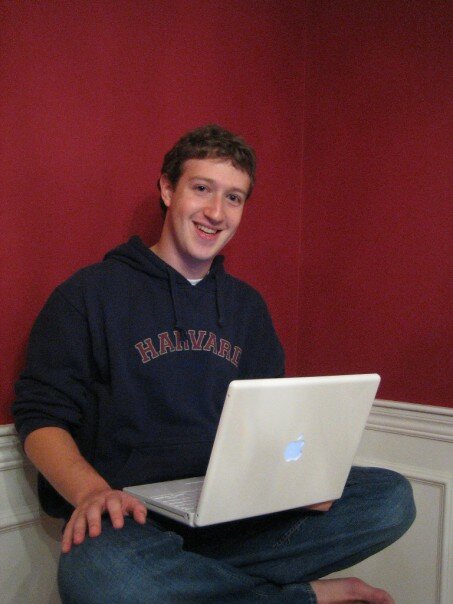 It was around this time that he built his first college project, CourseMatch. CourseMatch helped students choose their classes based on the course selections of other users. Following this he went on to build FaceMash, something heavily covered and criticized in the film, The Social Network.
It was around this time that he built his first college project, CourseMatch. CourseMatch helped students choose their classes based on the course selections of other users. Following this he went on to build FaceMash, something heavily covered and criticized in the film, The Social Network.
Facemash compared the pictures of two students on campus and allowed users, predominantly other Harvard students; to vote based on ‘hotness’ which one they found more attractive. It became extremely popular on campus, but was shut down by the school administration after it was seen as inappropriate.
Following the buzz and coverage of his previous CourseMatch and FaceMash projects, Zuckerberg was sought after and hired to work on an idea for a social networking site they called the Harvard Connection by Divya Narendra and twins, Cameron and Tyler Winklevoss.
The Harvard Connection was planned to use information from Harvard’s student networks to create a dating site for the Harvard elite. Zuckerberg agreed to help with project, but before long dropped out of it to work on his own social networking site, then called ‘The Facebook’ with friends Dustin Moskovitz, Chris Hughes and Eduardo Saverin.
Marks site allowed users to create their own profiles, upload photos and communicate with other users. It was built by Mark and ran by the group out of their dorm room at Harvard until June 2004
Following his sophomore year, Zuckerberg dropped out of Harvard and devoted himself to Facebook full time. They released Facebook to more and more colleges, moved to Palo Alto, California and by the end of 2004, Facebook had 1 million users. It had also dropped the ‘The’ and become just ‘Facebook’.
The Boom of Facebook
In 2005, the venture capital firm Accel Partners gave Facebook a huge boost and invested 12.7 million dollars into the company. Facebook was only open to Ivy League students at the time, however they granted access to other colleges, high schools and international schools, and in December 2005 had pushed the sites membership to more than 5.5 million users.
By now the site had begun attracting a lot of interest from other companies who wanted to advertise with it and Facebook gained offers from various companies including Yahoo! However, Mark refused to sell out and turned down all offers. He instead aimed to focus on expanding the site, adding more features and opening up the site to outside developers.
Facebook was booming and Zuckerberg was getting more and more successful by the day. But in 2006, he would face his biggest issue to date when the creators of Harvard Connection claimed that Mark had stolen their idea and demanded he pay up for their losses.
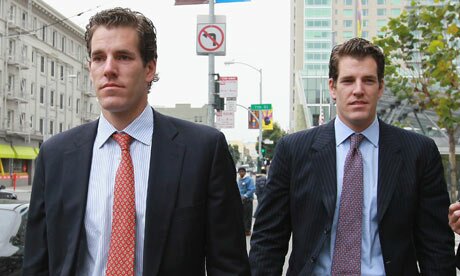 Zuckerberg insisted that the two projects were based on the ideas of two very different types of social networks, but after lawyers searched through Zuckerberg’s records, Instant Messages revealed that the Intellectual property of Hard Connection may have intentionally been stolen by Zuckerberg.
Zuckerberg insisted that the two projects were based on the ideas of two very different types of social networks, but after lawyers searched through Zuckerberg’s records, Instant Messages revealed that the Intellectual property of Hard Connection may have intentionally been stolen by Zuckerberg.
He went on to apologize for the messages and said he regretted them, later telling the New Yorker, “I think I’ve grown and learned a lot.”
An initial settlement was reached between the parties to the total of $65 million, however the legal dispute went on to continue well into 2011 after Narendra and the Winklevoss twins claimed they were misled on the value of their stock.
The Social Network
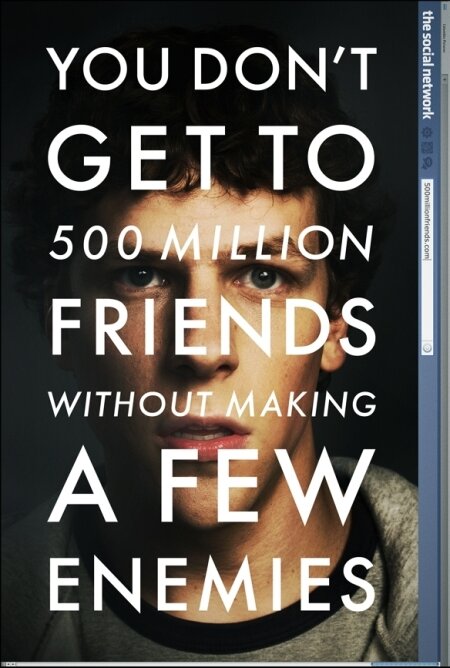 In 2009/10, Mark faced his second season of personal challenges with the release of the critically acclaimed film, The Social Network.
In 2009/10, Mark faced his second season of personal challenges with the release of the critically acclaimed film, The Social Network.
The Accidental Billionaires, a book covering the story of the beginning of Facebook was released in 2009 and got heavy criticism for its inclusion of many ‘invented scenes, re-imagined dialogue and fictional characters.’
However, regardless of the books truth or lack of it, writer Ben Mezrich sold the rights of the tale to screenwriter Aaron Sorkin and just one year later The Social Network was released. It went on to receive eight Academy Award nominations.
Zuckerberg disagreed with the film and has repeatedly objected strongly to the films story, stating how many of the details in the film were inaccurate; including his suggested interest in joining Harvard’s finals clubs.
“It’s interesting what stuff they focused on getting right; like, every single shirt and fleece that I had in that movie is actually a shirt or fleece that I own,” Mark told a reporter at a start-up conference in 2010, “So there’s all this stuff that they got wrong and bunch of random details that they got right.”
Continued Success & Philanthropy
However, regardless of the issues and criticism he has gained, Mark Zuckerberg and Facebook have been relentless in their continued upward route of success.
In 2010, Time Magazine named him Person of Year and Forbes ranked him Number 35 in it’s ‘400’ list, beating Apple CEO Steve Jobs and estimating his net worth to be $6.9 billion.
Since creating his fortune, Zuckerberg along with many other of the worlds richest people, including Bill & Melinda Gates, has used his money to fund and help in a variety of philanthropic causes.
In September 2013, he donated $100 million to the failing Newark Public Schools system in New Jersey and in December of that same year signed the “Giving Pledge”, promising to donate at least 50 percent of his wealth to charity over the course of his lifetime.
Zuckerberg has since called on other young and wealthy entrepreneurs of our generation to follow suit, saying: “With a generation of younger folks who have thrived on the success of their companies, there is a big opportunity for many of us to give back earlier in our lifetime and see the impact of our philanthropic efforts.”
Going Public
In May 2012, Mark made two very public acquisitions in his life.
Firstly, on May 18th Facebook had its initial public offering (IPO), raising 16 billion dollars and making it the biggest Internet based company IPO in history. How Facebook will handle the huge influx of cash is yet to be seen, although plenty of acquisitions such as that of Instagram the month before and more recently WhatsApp are expected.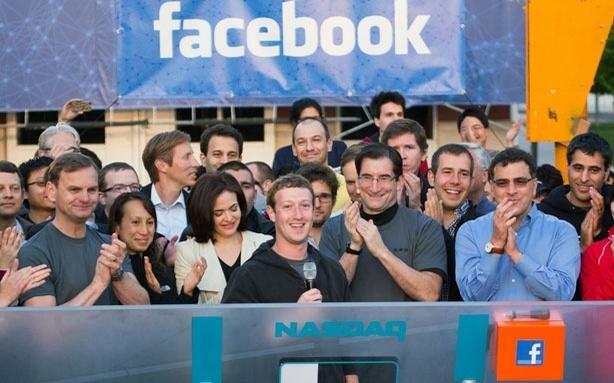
Mark Zuckerberg holds more than a quarter of the companies stock and retains 57% control of the voting shares.
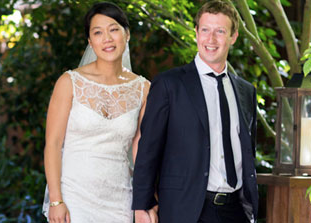 Secondly, on May 19th, just one day after Facebook’s IPO, Mark married his longtime girlfriend, Priscilla Chan, who he had been with throughout college and his journey with Facebook. Around 100 guests joined them at the couple’s home in Palo Alto, California thinking they were there to celebrate Chan’s graduation from medical school, but instead witnessed Zuckerberg and Chan exchange vows.
Secondly, on May 19th, just one day after Facebook’s IPO, Mark married his longtime girlfriend, Priscilla Chan, who he had been with throughout college and his journey with Facebook. Around 100 guests joined them at the couple’s home in Palo Alto, California thinking they were there to celebrate Chan’s graduation from medical school, but instead witnessed Zuckerberg and Chan exchange vows.
One year later and in May 2013, Facebook for the first time, made the Fortune 500 list, which made Zuckerberg the youngest CEO on the list at the age of just 28.
Life & Lessons
Personal Brand IS Important
Personal brands were once just for the rich and famous, but since the huge developments in online social media over the last decade, we all have a brand and we add to it and share it with all kinds of people every day.

“Think about what people are doing on Facebook today.” Says Mark, “They’re keeping up with their friends and family, but they’re also building an image and identity for themselves, which in a sense is their brand. They’re connecting with the audience that they want to connect to. It’s almost a disadvantage if you’re not on it now.”
We’re now in the 21st Century and although this lesson perhaps doesn’t feel like a life lesson, in this century it is. A key lesson from Mark is the need for a personal online brand. It can be done through websites, Instagram, Twitter and Facebook, it doesn’t matter but what does is the quality and scope of that personal brand you create.
It can get you jobs, experiences and unbelievable contacts to work with. It can give you ideas and inspiration or lead to a great opportunity to collaborate, which could change your life. If you’re not doing it, then in the words of Mark, you’re at a disadvantage.
Move Fast & Break Things
A key thing from many of the successful people, including Mark Zuckerberg, from the tech industry is their determination to ‘move fast and break things.’ The tech industry is an industry that is moving along so extraordinarily fast on its own that these entrepreneurs must move fast to keep up. But don’t be fooled to think this applies to just the tech industry as it in fact applies to all facets of life to.
Mark has previously said, “Move fast and break things. Unless you are breaking stuff, you are not moving fast enough.” You have to move so fast in life, that you’re breaking through your goals or breaking yourself. And once you’ve met either one of them, then you know you’re doing enough.
It’s Not What You Say, But What You Build
Mark was shamefully portrayed as an egotistical, socially-awkward and insecure guy in 2012 film, The Social Network and it’s something he’s made clear to the world he resents, however “People don’t care about what someone says about you in a movie – or even what you say, right? They care about what you build.” Says Mark, “And if you can make something that makes people’s life better, then that’s something that’s really good.”
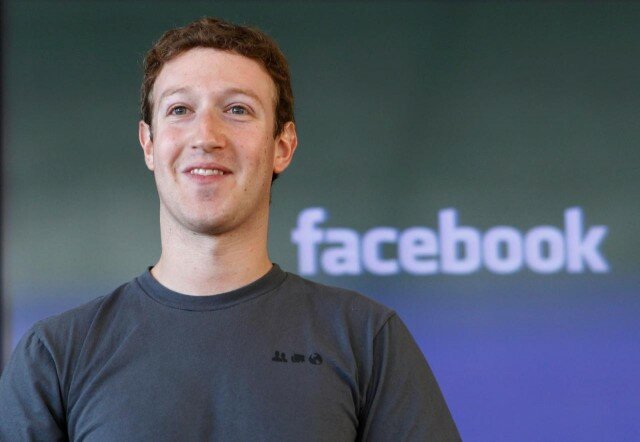 He’s learned only from experience the value of a bad look or portrayal in his industry, and being in one saturated with young people and moving along at the speed of light, he’s discovered that it’s actually not one that’s very high. He believes it’s what you create that people appreciate and not what either you or an actor says.
He’s learned only from experience the value of a bad look or portrayal in his industry, and being in one saturated with young people and moving along at the speed of light, he’s discovered that it’s actually not one that’s very high. He believes it’s what you create that people appreciate and not what either you or an actor says.
So don’t take to heart what’s said about you unless it has true merit and you have a problem that you really do need to face. Things are always being said in the world and we can guess no one in it has ever really grown up. So don’t be disheartened by the perception, but instead work to prove it wrong instead.
After all, in the words of Mark, “If you can make something that makes people’s life better, then that’s something that’s really good.”
Wrote by Joe Brown

